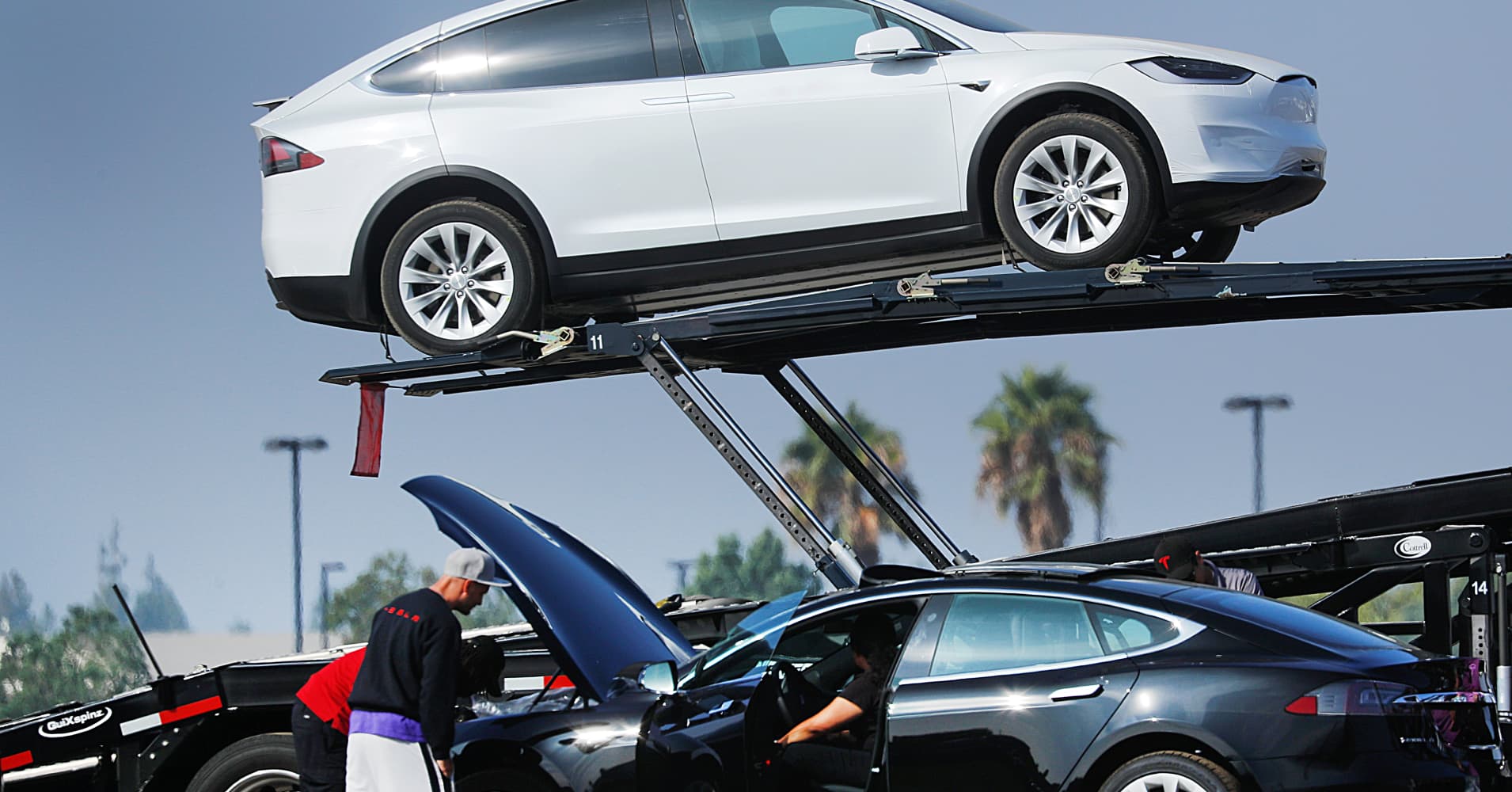
For your next car, would you consider plugging it in instead of filling it up?
"Electric vehicle sales are still under 2 percent of the new car sales every month, so it's a very small number," said Kelley Blue Book executive analyst Rebecca Lindland.
But she said that's beginning to change, especially in the luxury market.
"I think we're actually finally starting to see products that people want to buy," Lindland told CNBC's "On The Money" in a recent interview.
Last month, Tesla sold an estimated 20,500 cars. According to Clean Technica, in November 2018 Tesla had 27 percent of the luxury car market while BMW had 22 percent and Mercedes-Benz had 20 percent.
But Tesla will soon have more luxury EV competition.
Lindland recently test-drove Audi's upcoming all-electric SUV, called e-tron. "This is a vehicle that is finally normal. It was completely transparent that it just happened to be an electric vehicle."
"It feels like a regular car," Lindland said, "even when you brake. Usually regenerative brakes — brakes that give power back to the battery — they're really grabby; they kind of jerk. These were completely seamless."
Audi's e-tron starts at $74,800, and deliveries begin in the second quarter of 2019.
https://www.edmunds.com/audi/e-tron/
But Lindland pointed out that EVs aren't only at the luxury price point. The 2019 Chevrolet Bolt is $36,620, and the Nissan Leaf begins at $29,990.
"These vehicles are very affordable, and people still are not gravitating towards them," she said.
Lindland said part of the problem is how federal and state incentive subsidy programs are structured.
"I want to see the incentives completely redone. So as these vehicles become mainstream, as we start to get into that $30,000 to $45,000 vehicle, we incentivize those people," she said.
Current federal tax credits grant up to $7,500 to EV buyers, but they phase out when each manufacturer sells 200,000 electric cars.
"We are incentivizing all the wrong people: early adopters that are risk-oriented and have money," Lindland said. "They would be buying these vehicles anyway, and the $7,500 tax credit is just a little bit of bonus for them."
"On the Money" airs on CNBC on Saturday at 5:30 a.m. ET, or check listings for air times in local markets.
from Top News & Analysis https://cnb.cx/2T505T1
No comments:
Post a Comment